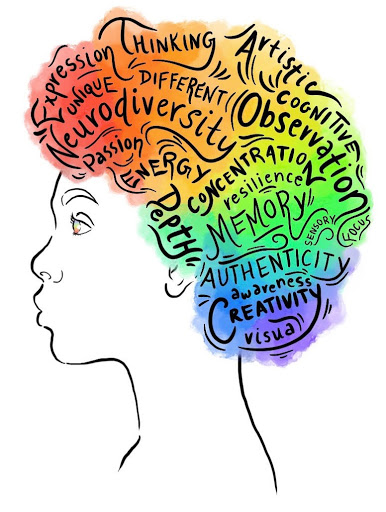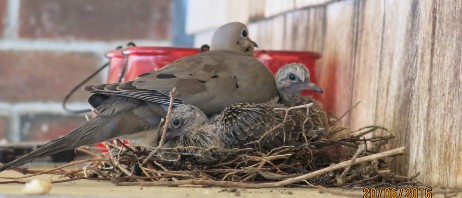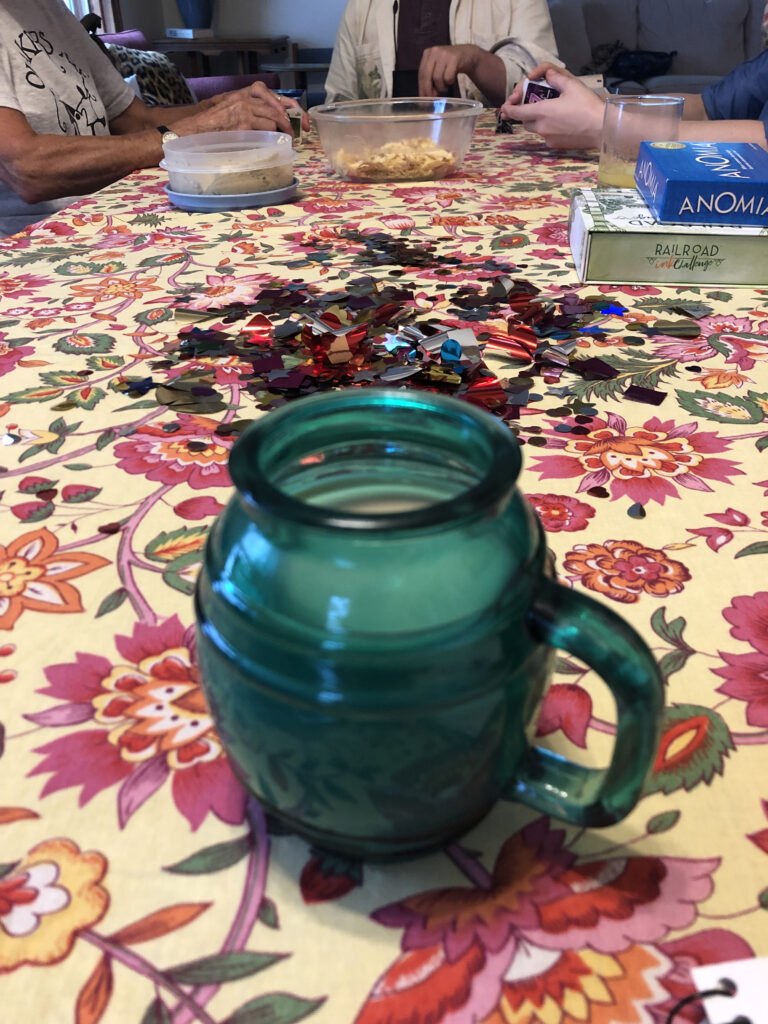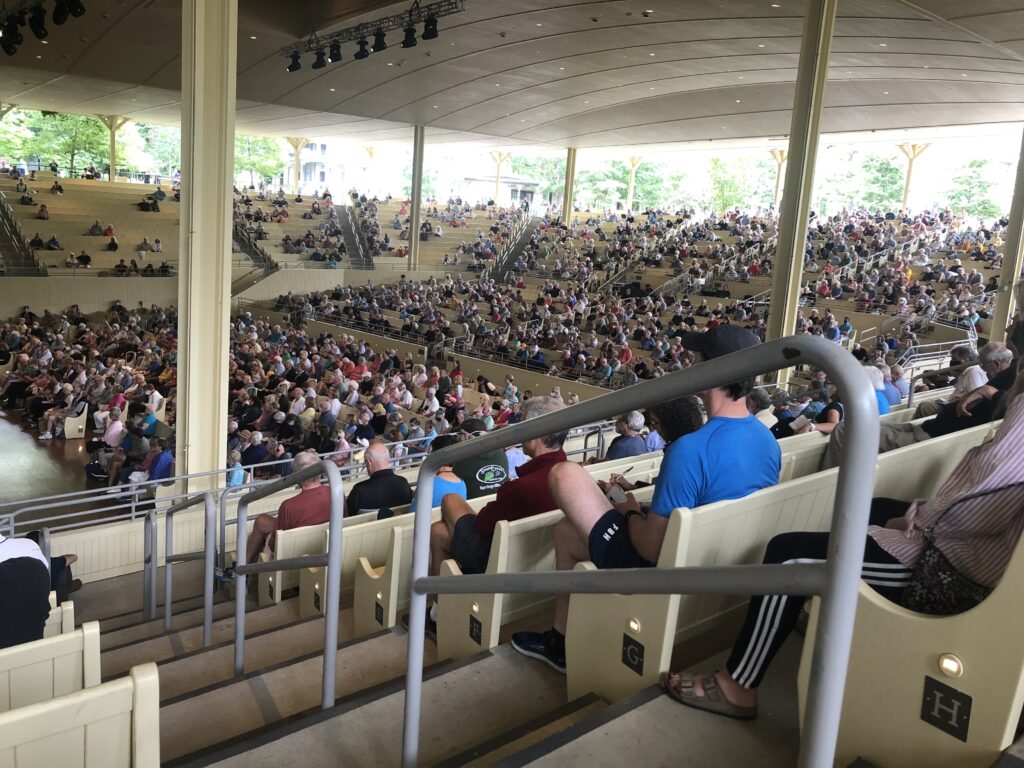Week Eight:
from Emily Provance, Friend in Residence

If there’s ever a time to delve into brain and soul, the time is now.
This week at Chautauqua, the institutional theme was “The Human Brain: Our Greatest Mystery.” The interfaith lectures centered on the human soul. We talked about the extraordinary power of the human brain, its capacity for both good and evil (and what does that mean?), the brain’s reaction to story, the reported soul experiences of those who have come near death, and trauma passed down through generations. We also heard gut-wrenching stories (and isn’t it funny that we talk about responding to stories in our gut?) about the treatment of humans with mental illness. Tuesday morning speaker Norman Ornstein told us, “My adult son had no understanding that he suffered from a mental illness. He resisted treatment because he believed he was having a religious experience. The legal system gave us no recourse, and as my wife says, ‘He died with his civil liberties intact.’”
Eighteen months of societal chaos and collective isolation has left many, perhaps the majority of us, with brain sickness or soul sickness, and really, how do we know which is which? Where does deep, empathetic sadness and anger end and clinical depression begin? When does trauma need prayer and when mental health care? Perhaps the answer is “both, and,” but I’m not content to leave it at that. The obvious intellectual answer is not so obvious when we’re in the midst of it.

Our Wednesday brown bag speaker at Quaker House, Emily Savin, talked on “A Quaker Perspective on Neurodiversity.” She reminded us that early Quakers said we were not waiting for the coming of Jesus,
that we have with us always the Inner Christ, that we are perfectly and exquisitely made for the building of the kingdom of God on earth, if only we work together, if only every person lives into who they’ve been created to be—including those of us with autism or ADHD or dyslexia—and we all need support to live into our full selves. She reminded us that mourning doves build notoriously messy nests, but rather than change the nature of the nests themselves, they look for structures in which to build that will support their messiness, preserving the nests and the eggs alike.

What support do you need right now?
This was the final question I asked the group at Friday storytelling: what has helped your brain and your soul during the last eighteen months?

Being able to stay home and safe.
Conversations with friends.
Supportive family.
God.
Golf.
Long walks in nature.
More golf!
Helping other people.
Making decisions together with a spouse.
Art and music.
Practicing empathy.

Our Monday morning speaker, Angus Fletcher, told us that the human brain is the strongest force there is, with the ability to save the world and the ability to destroy it. If that’s true—and I believe it is—than let’s take care of our own brains and souls, and each other’s.
